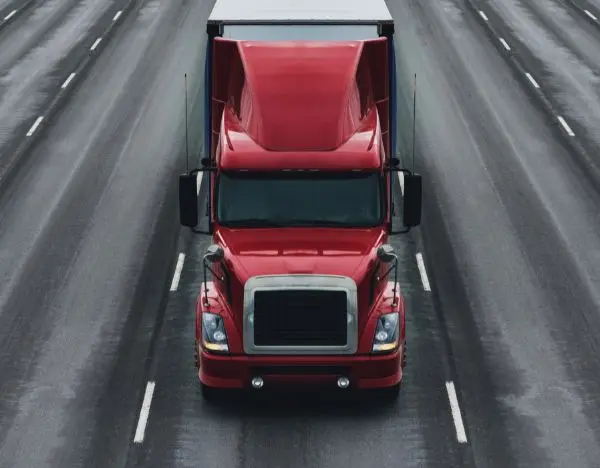Ready to Fight for You
What Are Average Truck Accident Settlement Amounts?
When you’ve been involved in a truck accident, the physical, emotional, and financial toll can be overwhelming. Navigating the aftermath, you might wonder about the potential settlement amount you could receive for your injuries and damages. At The Law Offices of Mark E. Weinberger P.C., we understand the complexities surrounding truck accident claims and are committed to helping our clients secure the compensation they deserve.
What Are Average Truck Accident Settlement Amounts?
Average truck accident settlement amounts can vary widely, ranging from tens of thousands to several million dollars. The amount depends on factors like the severity of injuries, the extent of property damage, lost wages, future medical care needs, and the circumstances of the accident. While minor accidents may result in lower settlements, severe accidents involving significant injuries or fatalities can lead to much higher compensation. It’s important to consult with a truck accident lawyer to evaluate the specifics of your case for a more accurate estimate.
Factors Influencing Settlement Amounts
Truck accident settlement amounts can vary widely based on several factors. Understanding these can provide you with a clearer picture of what to expect from your claim:
1. Severity of Injuries
The more severe your injuries, the higher the potential settlement. Serious injuries, like neck injuries, often lead to larger medical bills, longer recovery periods, and greater pain and suffering, all of which are considered in the settlement.
2. Impact on Quality of Life
If the accident results in long-term disability, disfigurement, or a significant impact on your ability to enjoy life, these factors can increase the settlement amount.
3. Lost Wages and Earning Capacity
Compensation can include lost wages and future earning capacity if the injuries prevent you from returning to your previous job or working altogether.
4. Medical Expenses
All past, present, and future medical expenses related to the injuries sustained in the truck accident should be covered. This includes hospital stays, medications, physical therapy, and other medical treatments.
5. Fault and Liability
The settlement can also be influenced by the degree of fault assigned to each party involved in the accident. New York follows a comparative negligence rule, meaning your compensation may be reduced by your percentage of fault.
6. Insurance Policy Limits
The defendant’s insurance policy limits may also affect the settlement amount. In cases where damages exceed these limits, identifying other liable parties or sources of compensation becomes crucial.
Understanding the Settlement Process
The settlement process for a truck accident involves several key steps and negotiations between the parties involved. Here’s a general overview to help you understand how the process works:
Medical Treatment and Documentation
After the accident, prioritize receiving medical treatment for any injuries. Keep detailed records of all medical visits, treatments, and diagnoses. Documentation is crucial for proving the extent of your injuries and their impact on your life.
Hiring a Truck Accident Lawyer
Consulting with a knowledgeable truck accident lawyer can significantly influence the outcome of your claim. A motor vehicle accident lawyer will evaluate your case, advise you on your legal options, and take over the negotiation process with insurance companies and other parties involved.
Investigation and Evidence Gathering
Your lawyer will thoroughly investigate the accident, collecting evidence such as police reports, witness statements, trucking company records, driver logs, and more. This evidence will support your claim for damages.
Determining Damages
The next step involves calculating the total damages, including medical expenses, lost wages, property damage, and non-economic damages like pain and suffering. Your lawyer will help quantify these damages accurately.
Filing the Claim
Your lawyer will file a claim on your behalf with the insurance companies involved. This claim will outline the damages you seek and the evidence supporting your case.
Negotiation
Once the claim is filed, there will be a negotiation phase where your lawyer and the insurance company discuss the settlement amount. Most cases are settled during this phase without going to court. Your lawyer will aim to secure the highest possible compensation for your damages.
Settlement Agreement
If both parties reach an agreement, a settlement document will be drafted. This document outlines the compensation amount and the terms of the settlement. Once signed, it releases the at-fault party from further liability in exchange for the agreed-upon compensation.
Receiving Compensation
The insurance company will issue the settlement check after the settlement agreement is finalized and signed. Your lawyer will handle the disbursement of these funds, ensuring that medical bills and other expenses are paid, and then provide you with the remaining compensation.
Potential Litigation
If a satisfactory settlement cannot be reached through negotiation, your lawyer may recommend filing a lawsuit and taking the case to court. This step is more time-consuming and complex, but sometimes it’s necessary to achieve fair compensation.
Understanding the settlement process can make navigating the aftermath of a truck accident less daunting. An experienced truck accident lawyer is essential to guide you through each step, handle the complexities of the case, and advocate for your best interests.
Recent Truck Accident Settlements Across the US

Here’s a summary of notable truck accident settlement amounts and verdicts across the United States, highlighting the significant financial outcomes that can result from these cases:
- $17,500,000 Settlement: One of the top settlements in 2020. This substantial amount reflects the serious implications and damages involved in truck accidents.
- $1,440,000 Verdict in Pennsylvania (2023): A notable verdict where the plaintiff was awarded over a million dollars, showcasing the legal system’s recognition of the damages and impact of truck accidents on individuals’ lives.
- $12,900,000 Verdict in California (2023): This significant verdict demonstrates the potential for high compensation in truck accident cases, reflecting the severity of injuries and the impact on the plaintiffs’ lives.
- $6,300,000 Settlement in Tennessee: A settlement resulting from a truck accident that resulted in the death of a retired 65-year-old, highlighting the tragic outcomes of such accidents and the compensation for the loss and suffering of the family.
- Average Heavy/Commercial Truck Settlement: $69,787.24: While not as high as some of the multi-million dollar settlements, this average amount indicates that settlements can vary widely based on the specifics of each case, including the severity of injuries, liability, and other factors.
These figures illustrate the broad range of outcomes in truck accident litigation, from average settlements to multi-million dollar verdicts. The high value of some settlements and verdicts reflects the serious nature of truck accidents, including catastrophic injuries or fatalities, and the significant impact these accidents can have on the lives of those involved and their families. Legal representation plays a crucial role in navigating these complex cases, advocating for the victims, and securing compensation that reflects the damages and losses incurred.
How To Pursue Compensation After a Truck Accident
Pursuing compensation after a truck accident involves several key steps to ensure you receive the compensation you deserve for injuries, damages, and losses. Here’s a concise guide:
Seek Medical Attention
Immediately after the accident, seek medical care for your injuries. This not only ensures your health and safety but also provides medical records that serve as evidence of your injuries.
Report the Accident
Notify the police about the accident so they can file a report. This report can be crucial evidence when filing your claim.
Gather Evidence
Collect as much evidence as possible from the accident scene. This includes photos of the vehicles, your injuries, the accident location, and contact information of witnesses.
Document Everything
Keep a detailed record of all medical treatments, expenses related to the accident, and any lost wages due to your inability to work.
Consult with a Truck Accident Attorney
Truck accident claims can be complex due to the involvement of multiple parties and the severity of injuries and damages. An experienced attorney can navigate the legal complexities, deal with insurance companies, and advocate on your behalf.
File an Insurance Claim
Your attorney can help you file a claim with the at-fault party’s insurance company. Be prepared to negotiate, as initial settlement offers may be lower than what you’re entitled to.
Consider Legal Action
If insurance negotiations cannot reach a fair settlement, your attorney may advise filing a lawsuit to pursue compensation.
Avoid Quick Settlements
Insurance companies may offer quick settlements to minimize payout. Consult with your attorney before accepting any offers to ensure it covers all your current and future needs related to the accident.
By following these steps and working with a skilled attorney, you can navigate the process of pursuing compensation after a truck accident more effectively, ensuring your rights are protected, and you are compensated fairly for your losses.
Why Are Truck Accident Settlement Amounts So High?
Truck accident settlement amounts are often high due to the severe injuries and significant property damage these accidents can cause, given the size and weight of commercial trucks compared to passenger vehicles. Additionally, trucking companies have substantial insurance policies to cover such damages, and liability can extend to multiple parties, including the truck driver, trucking company, and manufacturers. The high costs of medical treatment, potential long-term care, lost wages, and the impact on the victim’s quality of life also contribute to the size of the settlements.
How is Fault Determined After a Truck Accident?
Determining fault after a truck accident involves a thorough investigation to establish negligence. Here’s how the process typically unfolds:
Police Report
The responding officer’s report provides an initial assessment of the accident scene, including any violations of law that may indicate fault.
Evidence Collection
Photos of the accident scene, vehicle damages, road conditions, and witness statements contribute to understanding the accident dynamics.
Vehicle Data
Modern trucks are equipped with electronic logging devices (ELDs) and event data recorders (EDRs) that capture data on speed, braking, and service hours, which can be crucial in determining fault.
Compliance with Regulations
Investigators examine whether the truck driver and trucking company complied with federal and state regulations, including service hours, maintenance records, and load specifications.
Expert Analysis
Accident reconstruction experts may analyze the evidence and reconstruct the accident to identify contributing factors and faults.
Comparative Negligence
Some jurisdictions use comparative negligence rules, where parties can share fault based on their contribution to the semi-truck accident.
Legal and Insurance Investigation
Both legal teams and insurance companies conduct their own investigations to determine liability, using the collected evidence and expert findings.
Determining fault is a complex process that considers multiple factors and evidence sources to identify the responsible party or parties accurately.
Need Justice After a Truck Accident? Let’s Get Started!
Dealing with the aftermath of a truck accident can be daunting, but you’re not alone. A truck accident lawyer can guide you through the process, ensuring you receive the compensation you deserve. They’ll handle the heavy lifting, from evidence collection to negotiations. Don’t wait to seek justice and secure your future. Contact a truck accident lawyer today and take the first step toward your recovery.
How Can We Help You?
Fields marked with an * are required
"*" indicates required fields




